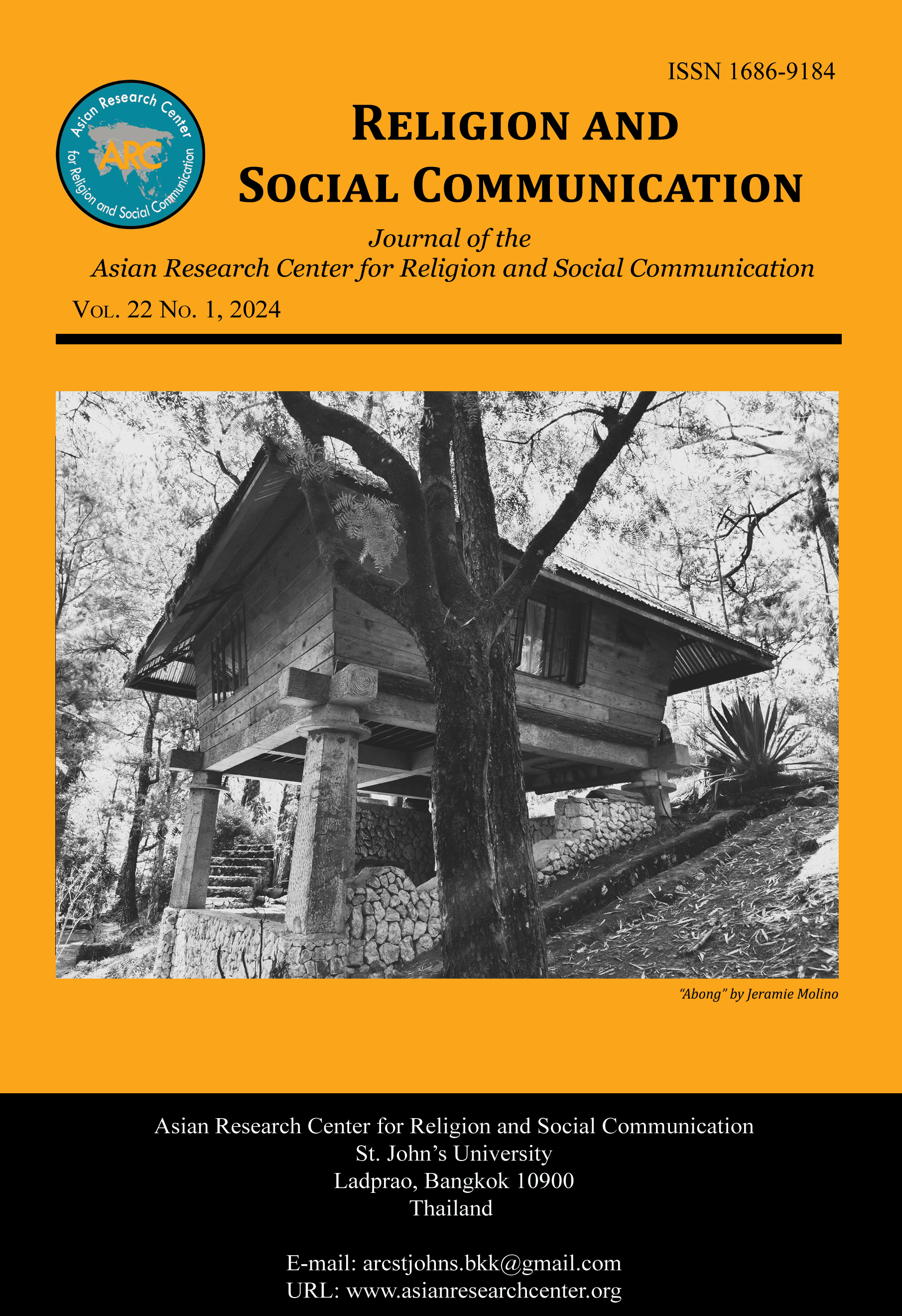[BOOK REVIEW]Algorithmic Culture Before the Internet
Download
RELIGION AND SOCIAL COMMUNICATION VOLUME 22, NO. 1 (2024)
ISSN 1686-9184
Author
Roderick Evans Bartolome
Book Reviewed
Ted Striphas. Algorithmic Culture Before the Internet. New York: Columbia University Press, 2023, 352 pp. ISBN 9780231206693 (Paperback)
PAGES 239-242
DOI: https://doi.org/10.62461/REB220123
University of Colorado, Boulder Associate Professor Ted Striphas brings his expertise on the interplay of language, technology and culture in his latest book, Algorithmic Culture Before the Internet. His previous book, The Late Age of Print: Everyday Book Culture from Consumerism to Control (Columbia University Press, 2009) received the Book of the Year Award from the National Communication Association’s Critical-Cultural Studies Division. He is also the editor-in-chief of the journal Cultural Studies.
Various studies and literature have affirmed how algorithms, loosely defined as a set of rules that direct the behavior of humans or machines, have shaped our practices and daily lives. Scrutinizing algorithms as objects of human inquiry, these studies have explored their implications in various contexts such as politics, media, criminal justice, culture, and the construction of the self.
Instead of providing a straightforward historical analysis of computational processes prior to the widespread use of the Internet and how it intersects with culture in various points in time, Striphas, in this book, took an academic and interdisciplinary approach, scrutinizing the topic from the lens of cultural studies. This work, as the author himself wrote, “is about the relationship of language and experience, and it seeks to explore, historically and on a human scale, how it ever made sense to bring culture and computation together” (p. 29).
To examine the development of the concepts of “algorithm” and “culture” long before the notion of “algorithmic culture” came about in the past decades, Striphas grounded the discussion through the works of Welsh author, academic, and cultural theorist Raymond Williams, particularly Keywords, which was published in 1976. Here, Williams took the cultural approach in investigating the historical changes in the meaning of 109 key words, which in turn were used to understand how society created new meanings that reflected the prevailing political and societal values at that time. In order to reflect how culturally important words change over time, a revised edition of Keywords with additional twenty keywords was published by Williams in 1983.
In turn, Striphas, offered to utilize the term “key-words” as “a specific practice of key words, operationalized in this book and inspired by Raymond Williams’ practice of keywords, by means to explore the ontogenesis of algorithmic culture” (p. 45). In the succeeding chapters, the author dealt with the key words “algorithm”, “culture” and “algorithmic culture” by uncovering their historical semantics and how they reflect society’s evolving patterns of thought, expression, and behavior.
For instance, before the term algorithm became “a monument to imperialism and white supremacy” (p. 238), Striphas noted that the word has a long and complex history that cuts through South, Central, and West Asia. While acknowledging that the term refers to Muhammad ibn Mūsā al’Khwārizmī, Striphas further dug into al’Khwārizmī’s life, and the historical context of imperialism, colonialism, and the ethnic and religious persecution that led the Persian mathematician to become a scholar in the House of Wisdom in Baghdad during the ninth century. “Algorithm refers to a person, then, but also to a place laden with imperial, colonial, and ethno-religious history” (p. 87). Striphas also traced how the standard al’Khwārizmī’s “story” was forged under British colonialism to show al’Khwārizmī’s Asia “amounted to nothing less and nothing more than Europe’s pre-civilizational past” (p. 101).
Delving into how the notion and understanding of what culture is and how it has evolved through time, Striphas devoted an entire chapter to examining the British school of cultural studies. He cites again the works of Williams, particularly through his influential work, Culture and Society published in 1958, and probing the lives and works of other prominent English cultural critics, namely, Matthew Arnold and F.R. Leavis.
As previewed by Striphas in the introduction, while Williams discussed the relationship of language and experience, he gave little focus on the “biographical – conditions under which culture’s senses and meanings are stretched out” (p. 32). Meanwhile, as for Arnold and Leavis, who were both considered elitists and did not think highly of popular culture, Striphas described them as “outsiders who observed the violent effects of state power, and in Leavis’s case suffered them bodily”, while also noting that “those experiences in turn led them to define culture as a flexible and critical resource for governing human relations peaceably” (p. 32).
Placing algorithmic culture in the longer history of how culture has been weaponized as a mechanism of control, the author took the discussion to the historical context of the Cold War, particularly in the establishment and development of Harvard University’s Russian Research Center, while also bringing to fore the discrimination and oppression of homosexuals in government and in the academe during those times.
This latest book by Ted Striphas certainly enriches the field of cultural studies, especially in attempting to untangle the intertwined concepts of culture and computation. As pointed out by the author himself, this work “isn’t a technical history, nor a history of technicians” (p. 28), which this reviewer also initially thought of when he came across this book for the first time. The book may be considered as primarily targeted to scholars of cultural studies, particularly those who already have a working familiarity with its interdisciplinary nature ranging from humanities and social sciences, as effectively demonstrated by the author in the various chapters of his latest work.
As he concluded his exploration of the historical semantics of the words in the book’s title to gain an understanding of algorithmic culture through the perspectives of language and culture, Striphas aptly introduced the concept of definitional agency to his readers. Ending on a hopeful and inspiring note, he advised us, his readers, that we are empowered to explicate the terms of our individual and collective lives. “You can, however, try amplifying some of is more compelling aspects, with the objective – in this case – of pushing back against the worst tendencies of algorithmic culture, and perhaps then of getting on good terms with a more equitable and inclusive version of it” (p. 242).





![[Book Review]David Thang Moe. Beyond the Academy: Lived Asian Public Theology of Religions.](https://asianresearchcenter.org/storage/image/2025/06/cover-for-web-1749467974.jpg.160x96.webp)
![[Book Review] Mary Frohlich. The Heart at the Heart of the World: Re-visioning the Sacred Heart for the Ecozoic Era](https://asianresearchcenter.org/storage/image/2025/01/cover-final-1735893887.png.160x96.webp)